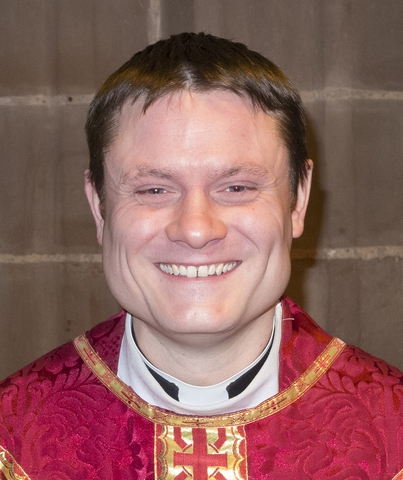
April News from the Clergy
31 Mar 2021 • From the Clergy
I stared, uncomprehending, at a square of blistered black paint. My friend was doing her PhD in Soviet art history and I had agreed to accompany her to the exhibition at the Royal Academy of Arts. I love art and art galleries, but it baffles me that people look at Caravaggio, with his magnificent use of light and shade to skilfully portray a gritty reality, in the same category as Jackson Pollock, who threw paint at a canvas. In general, I tend towards the view that if I could have done it, it’s not art. No matter how my friend went on about Malevich and the zero point of painting and radical challenges to artistic perception, this was a black square. As with pretty much all the pieces in the exhibition, but to a greater extent because it was so brazenly ridiculous, it did nothing to stimulate my mind or enrich my life. There was nothing I could take away from it. I might be in an art gallery, but this was not art.
The last year has felt a little like staring at that black square. I have been alive, but not living. Much as I felt there was nothing to take away from that painting, my instinctive reaction is that there is nothing to take away from the existence of lockdown.
People may talk of all the opportunities lockdown has provided and the chance to look at things differently, and I know that some have revelled in the experience, but I don’t understand. It has been terrifying to realise that I now understand what people mean when they talk about the consuming darkness, the inability to see the future or go on.
Kept apart from friends and family, unable to do anything enjoyable, forced to keep distance from people and hide behind a mask, confronted with the disturbing notion that government can regulate who we see, unable to visit loved ones before they died, taking funerals in the abjectly miserable circumstances of just five mourners, I cannot grasp how there is anything to learn or take forward from a year when I have stood on the brink of the abyss and have not yet been able to step back.
It is especially hard to do that when I have lost the ability to believe in the end of lockdown, unable to see how we get out of the fear into which we have descended and a perpetual lockdown cycle. Even if we do miraculously manage to emerge this time, how long until the next pandemic and the next curtailment of life?
What I came to realise about the square, and much of modern art in general, is that what mattered was not its (mediocre) intrinsic value, but the challenge it posed to what went before.
It attacked the certainties of classical art, forcing people to ask questions about what art was and how we found meaning. Moreover, it showed earlier work in brighter colours, allowing the viewer to appreciate things they might have missed or taken for granted.
Likewise, if (at least for me) lockdown has no intrinsic value worth retaining in itself, it has nevertheless compelled us to confront the injustices which went before, to realise all the things that we overlooked or failed to appreciate. It has become glaringly obvious that we took other people for granted, drastically undervaluing the importance of human society and contact. For all its huge importance in the past year, we have also learned the limits of technology; it can help and supplement, but can never replace physical interaction.
We must face how a whole generation, perhaps two, has been betrayed by a society which has failed the young and a government that is happy to let children go hungry. It is a grim series of lessons, but ones we must learn: Lockdown has taught us the depths of injustice and the callous indifference to basic humanity which underpinned our previous existence, and which we must now struggle to change.
And above all, even though right now this is something I know intellectually rather than feel emotionally, time and hope remain. The true lessons will become clear, as they have after past catastrophes, only as we move to a more distant point in time and can appraise things more dispassionately.
And if the Christian faith teaches us anything in this month of Easter, it is that there is always hope, a light in the darkness which in spite of everything, can never be overcome.